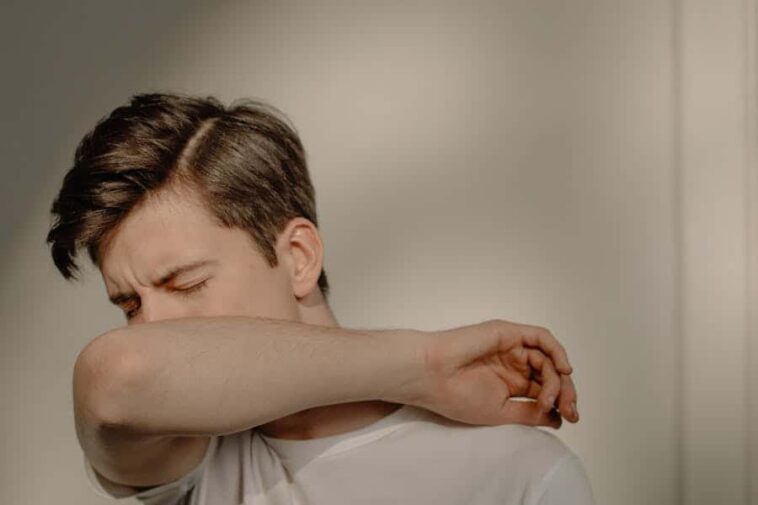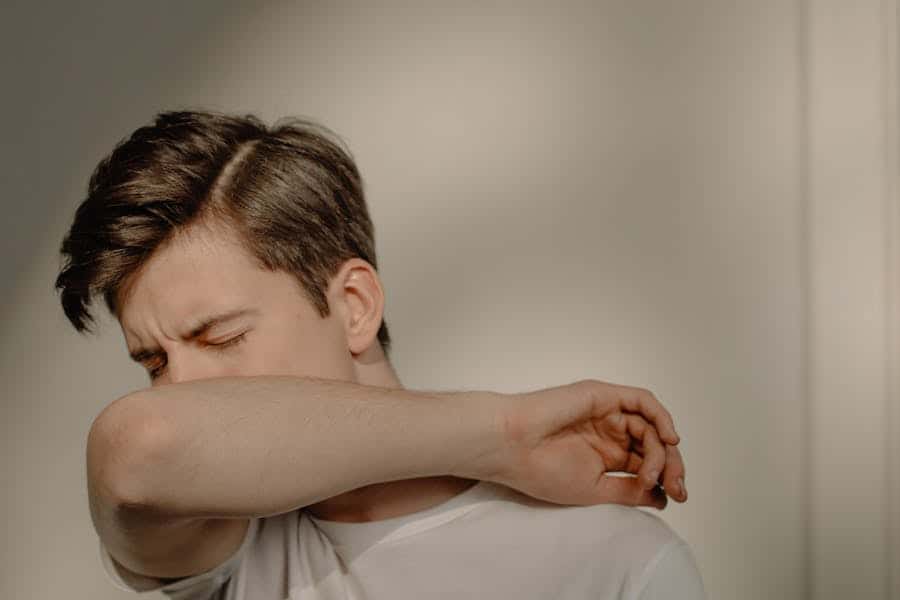Coughing is a natural reflex that helps clear the throat and airways, commonly triggered by irritants, infections, or specific health conditions. However, an intriguing phenomenon occurs when some individuals cough in response to laughter. While laughter is often associated with joy and positivity, for some, it paradoxically leads to coughing episodes. This unexpected reaction raises questions about the interplay between the respiratory system and the act of laughing. This article delves into the reasons behind coughing when laughing, exploring both the physiological mechanisms and potential underlying health issues that may contribute to this curious response.
Why Do I Cough When I Laugh?
Coughing when you laugh can occur due to the rapid expulsion of air from the lungs, which may irritate the airways and trigger a cough reflex. Additionally, underlying health conditions like asthma, GERD, chronic bronchitis, or allergies can make your airways more sensitive, leading to coughing during laughter, as these conditions exacerbate the irritation or constriction of the airways.

Common Reasons For Coughing When Laughing
Coughing when laughing is a phenomenon that can be attributed to various factors, ranging from benign reflex actions to underlying health conditions. Here are some common reasons:
- Rapid Air Expulsion: Laughter involves a forceful expulsion of air from the lungs, which can irritate the throat or airways, triggering the cough reflex as a protective response.
- Sensitive Airways: For some individuals, the airways may be more sensitive or prone to irritation, and sudden, forceful breathing during laughter can lead to coughing.
- Asthma: Laughter can act as a trigger for asthma symptoms, causing the airways to constrict and leading to coughing.
- Gastroesophageal Reflux Disease (GERD): GERD can cause stomach acids to flow back into the esophagus, irritating the throat and airways, which laughter might exacerbate, resulting in a cough.
- Chronic Bronchitis And Other Respiratory Conditions: These conditions involve long-term inflammation of the airways, making them more susceptible to irritation from rapid air movement during laughter.
- Allergies: Allergic reactions can cause inflammation and sensitivity in the airways. Laughter, by rapidly changing the air pressure in the lungs, can trigger coughing in sensitive individuals.
Management And Treatment Options
Managing and treating coughing episodes triggered by laughter involves a combination of lifestyle changes, medical treatments, and sometimes behavioral techniques, depending on the underlying cause. Here’s an overview of the options available:
1. Lifestyle Changes And Home Remedies
- Stay Hydrated: Drinking plenty of fluids can help keep the throat moist and reduce irritation.
- Avoid Irritants: Smoke, dust, and strong odors can exacerbate coughing, so minimizing exposure to these can help.
- Humidify Your Environment: Using a humidifier can add moisture to the air, reducing dryness that may irritate the throat.
2. Medical Treatments
Depending on the underlying condition contributing to the cough, various medical treatments may be recommended:
- For Asthma: Inhalers, both quick-relief and long-term control medications, can help manage symptoms.
- For GERD: Antacids, proton pump inhibitors, or H2 receptor blockers can reduce stomach acid and its backflow into the esophagus.
- For Chronic Bronchitis And Other Respiratory Conditions: Corticosteroids and bronchodilators might be prescribed to reduce inflammation and open airways.
- For Allergies: Antihistamines, decongestants, or allergy shots can help manage allergic reactions affecting the airways.
3. Behavioral Techniques
- Breathing Exercises: Learning to control breathing can help manage the impact of laughter on the respiratory system. Techniques like pursed-lip breathing or diaphragmatic breathing can be beneficial.
- Laughter Therapy: While it might seem counterintuitive, gradually exposing oneself to laughter in a controlled way can help some people reduce the sensitivity of their cough reflex over time.
When To See A Doctor?
The previous model used in this conversation is unavailable. We’ve switched you to the latest default model. Knowing when to seek medical advice for coughing when laughing is essential for proper diagnosis and treatment. Here are some guidelines:
- Persistent Symptoms: If coughing when laughing persists for more than a few weeks or becomes increasingly frequent or severe, it’s advisable to consult a doctor. Persistent symptoms may indicate an underlying health issue that requires medical attention.
- Associated Symptoms: Seek medical attention if coughing when laughing is accompanied by other concerning symptoms such as Difficulty breathing or shortness of breath, Wheezing or noisy breathing, Chest pain or tightness, Coughing up blood or discolored mucus, Fever or chills, Unintended weight loss or fatigue.
- Impact On Daily Life: If coughing when laughing interferes with your daily activities, social interactions, or quality of life, it’s advisable to see a doctor. Persistent coughing can affect sleep, work, and overall well-being, and addressing the underlying cause is important for management.
- Underlying Health Conditions: If you have a known history of respiratory conditions such as asthma, chronic bronchitis, GERD, or allergies, and you experience coughing when laughing, it’s important to discuss these symptoms with your healthcare provider. They can assess whether your current management plan is adequate or if adjustments are needed.
- Concern For Complications: If you have concerns about potential complications or the progression of symptoms related to coughing when laughing, don’t hesitate to seek medical advice. Early intervention can prevent the worsening of symptoms and improve outcomes.
Conclusion
In conclusion, coughing when laughing can be a curious and sometimes disruptive phenomenon, stemming from various factors such as rapid air expulsion, irritation in the airways, or underlying health conditions like asthma or GERD. While it may seem benign for some, persistent or severe cases warrant medical attention to identify and address any underlying issues. By understanding the causes and seeking appropriate management, individuals can effectively manage symptoms and improve their overall quality of life.
FAQ’s
Is Coughing When Laughing Normal?
It can be normal for some people due to the rapid air expulsion during laughter. However, persistent or severe cases may indicate underlying issues.
Can Allergies Cause Coughing When Laughing?
Yes, allergies can make the airways more sensitive, leading to coughing during laughter as a result of increased irritation.
Should I Be Concerned If I Cough When I Laugh?
Occasional coughing during laughter is usually not a cause for concern. However, if it’s frequent, severe, or accompanied by other symptoms, it’s advisable to see a doctor.
Can Laughter Trigger Asthma Symptoms?
Yes, laughter can act as a trigger for asthma symptoms in some individuals, leading to coughing, wheezing, or shortness of breath.
How Can I Prevent Coughing When Laughing?
Maintaining good respiratory health, avoiding known triggers, and seeking appropriate treatment for underlying conditions can help reduce the likelihood of coughing when laughing.





